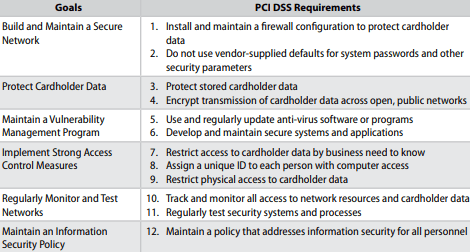Data breaches have become increasingly common in the digital age, with many companies experiencing the consequences of a security breach. From loss of confidential data to damage to a company’s reputation, the fallout from a data breach can be extensive. But when a data breach occurs, can a company be held accountable? The answer is yes; while no one can guarantee absolute security, companies do have a duty to take adequate protection measures to protect your data. This article will discuss when and how you can sue a company for a data breach.
If you’ve experienced a data breach, you may be wondering whether you can take legal action against the company responsible. It’s important to understand that the process of suing a company for a data breach is complex and requires a thorough understanding of the law. However, if you have experienced a data breach, it’s worth exploring your legal options in order to hold the responsible parties accountable. By understanding your rights and the legal process, you can protect yourself and your data from further harm.
Yes, you can sue a company for a data breach. If the company has not taken the proper steps to protect your data, or if they have failed to inform you of a data breach, then you may be able to file a lawsuit. Depending on the circumstances, you may be able to receive financial compensation for any damages that have been caused by the breach. The best way to learn more about your legal rights is to speak to a qualified attorney.

Can I Sue a Company for a Data Breach?
Data breaches are becoming increasingly common, and as a result, more and more people are asking if they can sue a company for a data breach. In this article, we will discuss the legal and practical implications of filing a lawsuit against a company for a data breach.
What is a Data Breach?
A data breach is the unauthorized access of sensitive, confidential, or otherwise protected data by an individual or group of individuals. This can include anything from credit card numbers and Social Security numbers to medical records, bank account numbers, and other personal information. Data breaches can occur through a variety of methods, including malicious software, hacking, or even phishing scams.
Data breaches can have a wide range of consequences, including identity theft and financial loss. In some cases, companies may also be held liable for the breach and may be required to pay damages to affected individuals.
Can I Sue a Company for a Data Breach?
In most cases, it is possible to sue a company for a data breach, though the success of such a lawsuit will depend on the circumstances of the breach and the laws in the jurisdiction where the breach occurred. Generally speaking, companies may be held liable for a data breach if they failed to adequately protect the data or if the breach was caused by their negligence.
Additionally, companies may be held liable for a data breach if they failed to notify affected individuals in a timely manner, or if they failed to take steps to mitigate the damage caused by the breach. Depending on the laws in the jurisdiction where the breach occurred, companies may also be held liable for punitive damages. As such, it is important to consult a lawyer to determine whether a lawsuit is a viable option.
What Are the Legal Implications of Suing a Company for a Data Breach?
Suing a company for a data breach can have a wide range of implications, both legal and practical. First and foremost, it is important to understand the applicable laws in the jurisdiction where the breach occurred. Depending on the laws in that jurisdiction, the company may be liable for damages, or even punitive damages.
Additionally, it is important to understand the economic implications of filing a lawsuit. Depending on the size of the company, the cost of filing a lawsuit may be prohibitively expensive. Furthermore, if the lawsuit is unsuccessful, the individual filing the lawsuit may be liable for the company’s legal fees.
Finally, it is important to consider the practical implications of suing a company for a data breach. Depending on the size of the company, the lawsuit could result in significant publicity and negative press, which could have far-reaching implications. It is important to consider all of these factors before deciding to file a lawsuit.
Frequently Asked Questions
A data breach is an incident where sensitive, confidential, or protected data has been viewed, stolen or used by an individual unauthorized to do so. Data breaches can cause serious harm to individuals and businesses, and can even lead to legal action.
Can I Sue a Company for a Data Breach?
Yes, it is possible to sue a company for a data breach. Depending on the circumstances, you may be able to file a lawsuit against the company that suffered the data breach. This is especially true if the breach caused you financial harm or resulted in an invasion of your privacy.
In most cases, the company that suffered the breach will be held responsible for any damages caused. They could be liable for lost wages, medical expenses, or any other expenses caused by the breach. Depending on the situation, they may also be liable for any emotional or psychological damages caused by the breach. Additionally, depending on the laws in your jurisdiction, the company may be liable for any punitive damages that they are found to have caused.

A data breach can be a very serious issue for any company. If a company fails to protect the data of its customers, then it can be held liable for any damages that may arise from the breach. If the company does not take the necessary steps to protect its customers, then it is possible to sue the company for a data breach.
Therefore, it is important for companies to take the necessary steps to ensure the security of their customers’ data. If a company fails to do so and a data breach occurs, then the affected customers have the right to take legal action against the company. Taking legal action can help to protect the rights of consumers and ensure that companies are held accountable for their actions.


